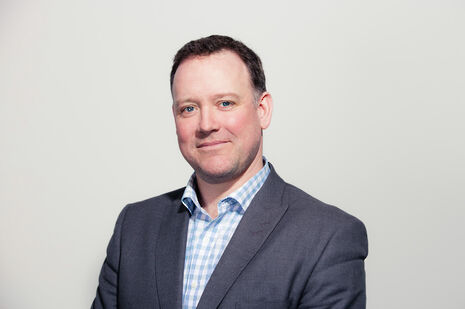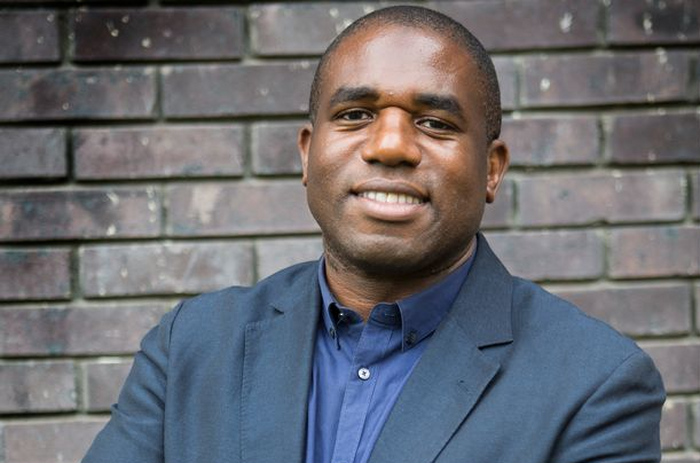Michael Penrose: ‘There are no humanitarian solutions to political problems’
Felix Peckham meets UNICEF UK’s Executive Director to discuss humanitarian crises and the impact of climate change on the world’s children

“I’ve been doing this for twenty-four years and the phrase that I’ve heard the most is, ‘Never again’.”
This is the single most frustrating thing about being the Executive Director of UNICEF, according to Michael Penrose, the man who currently holds this title. Although he’s only been at UNICEF for the past 18 months, he has spent his entire working career at humanitarian organisations.
“I heard it after Rwanda. After Chechnya. After Bosnia. After Kosovo. After the Democratic Republic of Congo. After the 2011-12 famine in East Africa, but we’ve had another one since.”
“This is the result of financing the immediate over the investment we know could prevent the humanitarian crises of tomorrow,” he explains. “We know that a pound spent today will have a far greater impact in several years’ time, spent strengthening the systems we need in order to prevent disasters and emergencies.”
A further point of frustration, developed over many years and through countless crises, is the perception that political problems should be solved by humanitarian solutions. Penrose says emphatically: “There are no humanitarian solutions to political problems.”
“The vast majority of displacements and crises are caused by conflict. Conflict is driven by politics. We often look to the humanitarian community to find the problems [sic] to humanitarian crises. We can fix the immediate; we can keep people alive. But the solutions are political.”
This logic does seem to resonate. The Syrian Civil War, for example, is a political crisis which has led to an estimated 470,000 deaths. Surely we should try and achieve political solutions to either prevent such tragedies or to end them quickly, rather than just using humanitarian organisations to try and marginally alleviate the struggles of those disadvantaged, displaced and killed by these conflicts?
“There are no humanitarian solutions to political problems”
Penrose is unequivocal in his assessment of the principal threat to children’s welfare in the UK: “it’s the growing levels of inequality that we’re facing. It’s enormous and it’s growing.”
He says the problems for children in the UK have changed over the course of his career. “Inequality is causing the disenfranchisement which is creating and driving some of the political instability we’re seeing at the moment. I think until we address issues such as how children access basic services, how children understand their rights, how they get heard, how they feel like part of a society – as opposed to outside of it – the longer that this slightly tumultuous period will continue.”
On the topic of foreign aid, Penrose tells me that “there’s a big disparity in the amount that different countries are doing. One thing we should be very proud of in the UK is that we are one of very few nations – just a handful – that give 0.7% of GDP to overseas development. A lot of countries aren’t pulling their weight in comparative terms.”
“The global humanitarian appeals that exist today need somewhere around £24 - 25 billion and we’ve barely raised a quarter of that at the moment. We are nowhere near generous enough globally, but certain countries certainly do pull their weight more than others.”
Pointing to the emerging trend towards isolationism – evidenced by Trump’s election and Brexit – I ask whether this concerns Penrose and what sort of an impact this has on UNICEF.
“Very concerned indeed,” he replies. “I think the more language moves away from ‘our responsibility as global citizens’ towards isolationism and nationalist rhetoric, the more likely we are to become poorer as a society and as a global community.”
Given Trump’s decision to remove the United States from the Paris agreement on climate change, I ask what sorts of tangible effects climate change is having on children around the world.
“We are seeing increasing desertification in West Africa. We’re seeing the impact of natural disasters growing in the US and in the Caribbean, as well as in states such as the Philippines which regularly face natural disasters. It’s a combination of climate change and increasing urbanisation. We are also seeing greater intensity and greater frequency of cyclones and hurricanes. Inevitably, we are going to see more humanitarian needs. I think some of the ones hitting more developed countries will start to drive that message home.”
“If we can talk to students, right now, about what it means to be a responsible global citizen, then they go into the corporate sector with that mindset”
Clearly engaged on the topic of climate change and children’s welfare, Penrose segues into the topic of the changing nature of migration.
“We are now facing a world with 65 million displaced people – the greatest number since the Second World War. By 2050, the estimated number of people displaced by climate change will be 150 million. Unless we actually start looking at migration caused by climate change, and the population movements at the moment as just the beginning, and stop trying to prevent them, and actually start getting used to dealing with the effects of climate change, we’re trying to hold back the tide with rhetoric. That’s never going to work.’

David Lammy: “How are Ivy League universities more representative than Oxford and Cambridge?”
As Penrose is ushered towards the Union chamber, I ask him a final question: how does he feel about graduates being seduced into the corporate and financial sectors?
“I think it’s great that the brightest and the best go into the corporate sector and do very well. But they should do it with a social conscience. The funding gap will be achieved by business doing the right thing, and also in seeing value in doing the right thing. I think that’s the big challenge now. If we can talk to students, right now, about what it means to be a responsible global citizen, then they go into the corporate sector with that mindset”
 News / SU reluctantly registers controversial women’s soc18 December 2025
News / SU reluctantly registers controversial women’s soc18 December 2025 Features / Should I stay or should I go? Cambridge students and alumni reflect on how their memories stay with them15 December 2025
Features / Should I stay or should I go? Cambridge students and alumni reflect on how their memories stay with them15 December 2025 News / Dons warn PM about Vet School closure16 December 2025
News / Dons warn PM about Vet School closure16 December 2025 News / Cambridge study finds students learn better with notes than AI13 December 2025
News / Cambridge study finds students learn better with notes than AI13 December 2025 News / CUP announces funding scheme for under-represented academics19 December 2025
News / CUP announces funding scheme for under-represented academics19 December 2025








